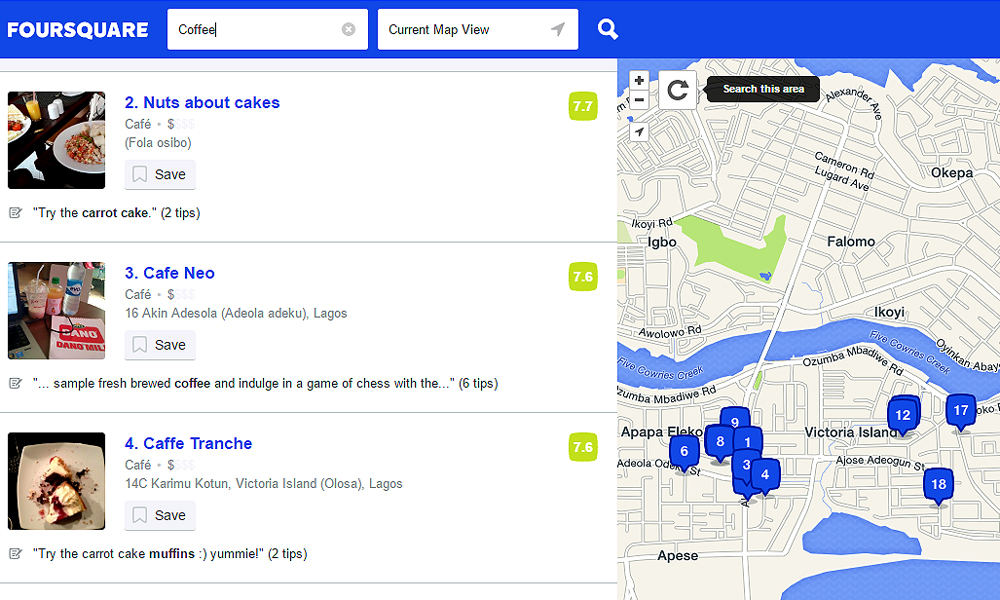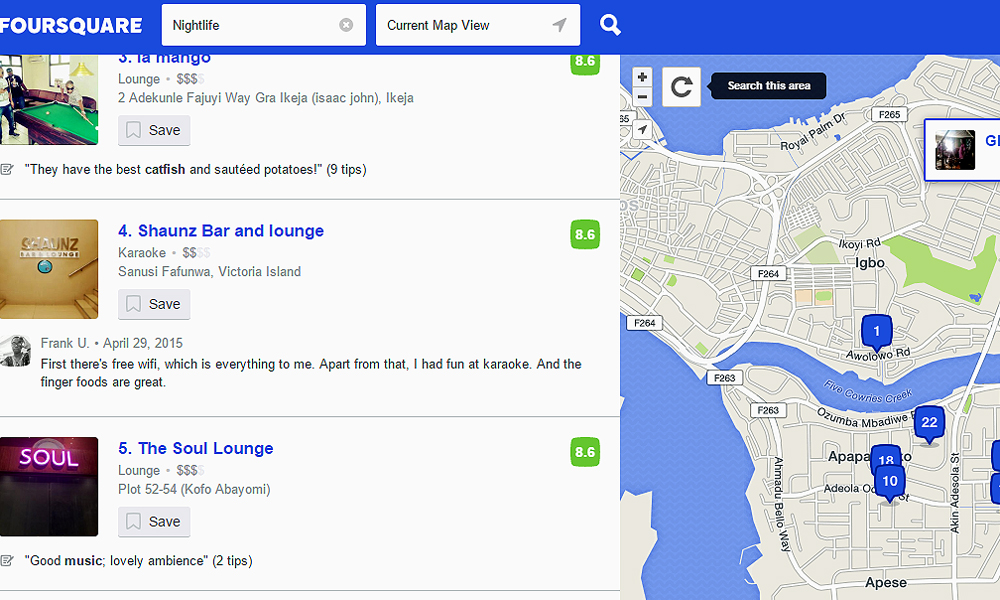Location based services in Africa growing at CAGR 49%+, Technavio report
Technavio analysts forecast the location based services market in Africa to grow at a CAGR of over 49% during the forecast period, according to their latest report. The research study covers the present scenario and growth prospects of the location based services market in Africa for 2016 to 2020. The leading vendors in this market are Foursquare, Google, MTN, HERE, and TomTom.
To calculate the market size, the report considers revenue generated from the annual sales of the following:
- Location based services applications, software, and digital map
- Location based services map, mobile location based services
- Location based services solution segments
Technavio analysts highlight the following four factors that are contributing to the growth of the location based services market in Africa:
- Rise in demand for personal and enterprise navigation services
- Indoor location based services applications for public safety and emergency support
- Integration of location-based search with social networking websites
- Rapid adoption of beacon technology
- Rise in demand for personal and enterprise navigation services
The demand for personal and enterprise navigation services has surged dynamically over a period of time. This, in turn, has led to the growth of the location based services market globally. Navigation services include real-time navigation, LBA, and payment. These services generate revenue primarily through fees for map updates, advertisements that lead to purchases, and other fees including toll or parking fees.
According to Rakesh Kumar Panda, a Lead Analyst at Technavio for Research on M2M and connected devices, “The high availability and declining costs of smartphones are facilitating the adoption of workforce management services, which improve operational efficiency for businesses. Logistics companies can track the movement of goods across the country using real-time sensors. location based services also include voice-enabled in-car and pedestrian navigation services, which contribute to the market revenue considerably.”
Indoor location based services is reinventing mobile advertising, app development, and the mobile ecosystem. Indoor navigation is the primary application of indoor location based services. Location sharing enables users to identify contacts and connect with friends either virtually or in person.
Public safety includes the use of location information for emergency response, as well as the protection of individuals and assets. Indoor location based services locates and tracks emergency callers and public safety officers. In addition, location based services enable monitoring of areas sensitive to law and order disruptions through virtual geo-fence technology.
“The use of social networking sites such as Facebook, Twitter, and Flickr on mobile platforms is increasing rapidly worldwide. Simultaneously, the use of location based services applications on smartphones is also witnessing a significant growth. Therefore, most handset manufacturers and location based services providers are developing applications that integrate location-enabled search with social networking sites. This integration helps users post updates on social networking platforms with exact location information,” says Rakesh.
Location based services providers such as GeoSolutions Holdings, Pelago, and Loopt offer location-based mobile social networking services, allowing users to share real-life experiences using geo-tagged, user-generated multimedia content. Also, users can reach advertisers on their social networking sites based on their location. In addition, the integration of location based search with social networking websites helps local advertisers target potential users easily.
Business marketers need to improve their marketing strategies, with respect to advances in technology, in order to reach the target audience with relevant advertisements and content. Beacon-triggered marketing enables marketers to send relevant information to people.
Beacons are low-cost devices that are attached to store shelves to ensure effective communication with customer smartphones. They enhance indoor maps, payments services, and other location-sensitive product catalogs. Beacon-triggered marketing, an accurate model of proximity marketing, uses Bluetooth signals from the beacons in stores. Since beacons are inexpensive and easy to deploy, their adoption rate has increased significantly.
These services generate high revenues for the market primarily through fees for map updates and advertisements. These services also include voice-enabled in-car and pedestrian navigation services, which contribute to the market revenue. Moreover, the rise in internet penetration has boosted the adoption of smartphones in workforce management services for tracking the movement of goods through real-time sensors.
According to this market research study, an interesting trend gaining momentum in the market is the growing popularity of proximity-based mobile advertising among enterprises. Proximity-based solutions send relevant offers and information to individuals and allow companies to track data related to people at different venues and locations. These solutions also help companies discover typical traffic patterns to understand and analyse consumer buying behavior. The growing trend of personalised shopping experience to customers has boosted the need for location data and behavioral insights, which will impel the prospects for growth in this market until the end of 2020.
Indoor location based services is the fastest-growing segment of this market and is expected to grow at an impressive CAGR of 57% by 2020. Indoor location based services analytics helps retailers track the buying patterns of customers and offer customised services and specific discounts or coupons, which in turn helps increase sales revenue. Factors such as increasing internet penetration and the growing popularity of social networking will propel this market segment’s growth over the forecast period.
Telecom operators are developing new ways to promote location based services among target customers in countries, including Nigeria, South Africa, and Kenya. The key providers in the region are offering distinguishing services such as mobile banking and mobile entertainment to gain a competitive edge in the market. The market is witnessing collaboration between mobile operators and application providers, which are focusing on providing enterprise location based services such as asset tracking, mobile advertising, and card payments.
Key vendors in this market are Foursquare, Google, MTN, HERE, TomTom. Other prominent vendors in this market include Airtel Africa, Asset Telematics, Astrata Group, Cellfind Blue Label Telecoms, Ericsson, Intertel, LocateIT, Momo, MySidekick, mySOS, Ruckus Wireless, StarTrack, TeleCommunication Systems, Telenity, VigilM, Vodacom, and WestconGroup.



